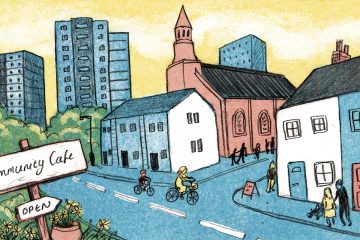This week the third in our series of guest blog posts during Covid-19 comes from a volunteer at Citizens Advice in Surrey. Dinah writes:
Millions unable to go to work. People unable to pay their rent. Limited access to supermarkets. You’d think it would send people flocking to Citizens Advice.
Well, it would and does, but Citizens Advice offices are closed. But that doesn’t mean they’re not functioning. After the lockdown was announced on 23rd March 2020, my local Citizens Advice (CAW) moved quickly to set up a remote working system.

CAW is the biggest Citizens Advice in Surrey, a county perceived as affluent but where there are some real areas of deprivation. The office has around 70 volunteers, many of whom are over 60 and some are over 70. By 23rd March, some had already indicated that for health reasons they could no longer come into the office. Within a very few days, however, a Homeworking Manual was produced and a home-working system set up so that supervisors could allocate to volunteers cases to work with. Volunteers would do the necessary research, draft emails or other responses to clients, phone clients if necessary, and send their findings back to the supervisors so that clients could be given some answers.
Clearly much of the work we’re doing arises directly from the lockdown. Citizens Advice nationally has reported that 38% of households have lost income, and 10% have lost 80% or more of their income. With service providers such as local councils, Job Centres and government call centres themselves working under difficult conditions, helping clients has been more difficult. So, what have been the main issues arising?
First, employment. Not all employers appeared either to understand the furlough scheme, or to be willing to do the necessary work to implement it. Instead, we found some preferred to make redundant, or just dismiss, employees with less than two years’ service, who have no right to claim unfair dismissal. There were also issues with people who had been in the process of changing jobs when the virus struck: but in order to get government-funded furlough pay, an employee had to be on the payroll by 19th March. It was suggested that those who’d resigned from one job but not yet started another, could ask their former employer to re-employ them so that they could get some pay. For various reasons, some employers were not willing to do this.
Employers’ own difficulties caused further problems. One restaurant chain, already in financial trouble, used the furlough scheme for one month but then failed completely and, through the Insolvency Service, made all their employees redundant. Several then consulted CAW.
Second, benefits. The Universal Credit system, problematic already, had its problems multiplied when faced with millions of new claims caused by coronavirus. People who had never claimed before, such as people between jobs, suddenly had to put in claims. Naturally, many of these needed help.
Of course, the fact that there was a slew of new problems does not mean the old ones go away. There are still tenants in substandard accommodation, debt problems, people needing food vouchers, homeless people and victims of domestic abuse. So CAW has continued to do its best to help out all who have asked.
We are all learning new approaches from the present situation, and CAW will continue to strive to help its clients, remotely, for as long as necessary.
Thank you Dinah for this blog post. If you would like to write a future guest blog post for Life on the Breadline please contact Stephanie at stephanie.denning@coventry.ac.uk


